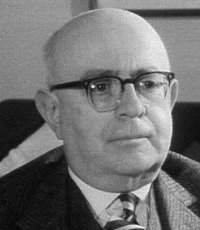
Theodor Adorno asserted that lyric poetry, which tends to focus on individuals and subjective impressions, can in fact be used as a kind of societal barometer. It isn't what is in the lyric poems, necessarily; it's what is left out. Lyric poetry implicitly implicates an uncaring, mechanized, homogeneous society. Because lyric poetry is traditionally the province of the "epiphanic/Romantic I", and because Language Poetry has the dual aim of robbing this "I" of its perceived hegemony and also enacting an (often Marxist) critique of conspicuously consumptive (American) society, it made me wonder what, in fact, is a more effective method of effecting change: lyric poetry that implicates indirectly, or post-avant poetry that takes, not exactly a direct approach, but a more direct (even when "deconstructive") approach then the conventional lyric takes, in its assault on materiality and societal conventions.
Adorno uses the example of
Baudelaire, and the
note of despair which runs through his poems. The formal aspects of Baudelaire's poetry were, for Adorno, a way of classicizing his work, separating it from the heavy vulgarian influence of the bourgeoisie. Formality in high art is
punkish enough to do that trick. By Adorno's standards, Baudelaire gets tangled, though, because by the time he wrote
Paris Spleen he was criticizing bourgeois France pretty directly. His allegories all exposed the cold, hard reality beneath the veneer of charm and lightness which dominated nineteenth-century upper-class France. How about the lyricists of today? This is hard for me to address— if there are any genuine ones, I don't really read them. I do write
lyrically, and read poets that do lyrical stuff, like
Corso,
Larkin, and others, sometimes, but these poets don't seem to be pure lyricists. Many lyric textual personas do, in fact, implicate an uncaring "consumerist" society, sometimes directly, and with darkling hints of levels built into society more sinister than the merely consumerist. These seem to move in a dark, miasmic wilderness, from
Wordsworth and the
English Romantics on
out. It seems that they manifest the sort of syndrome Adorno is referencing.

